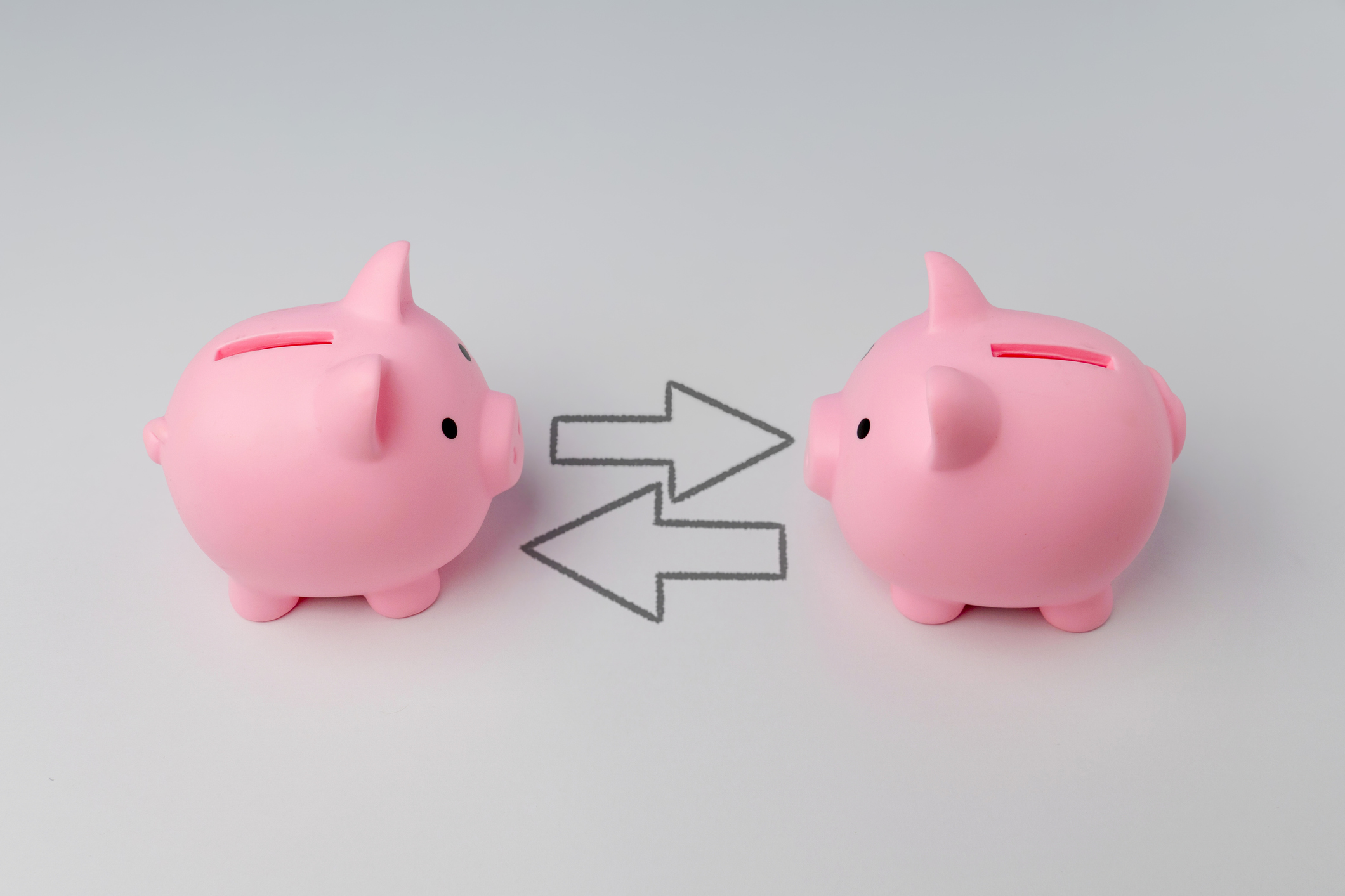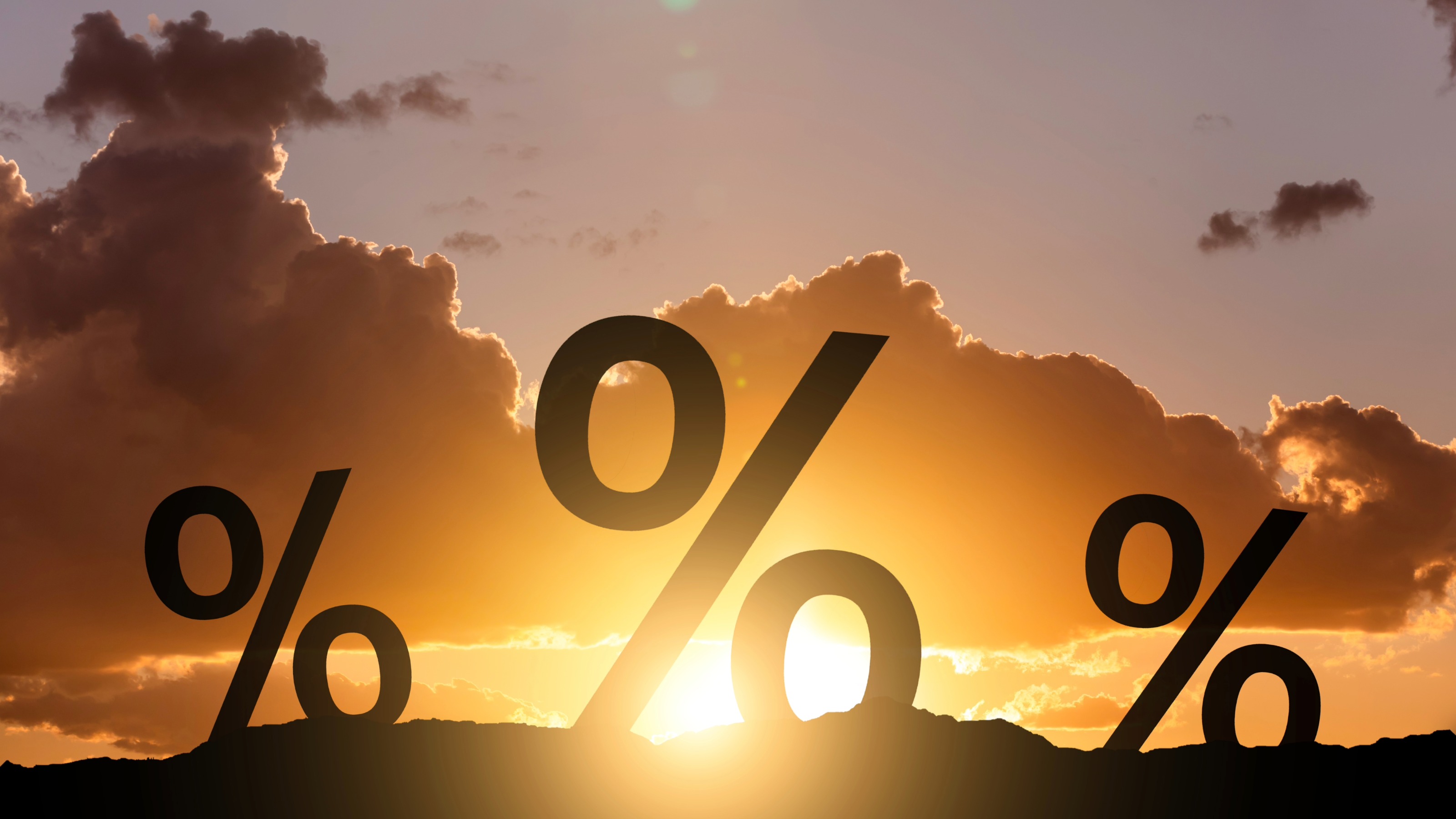How to Choose Between Look-Alike ETFs and Mutual Funds
If you're trying to choose between ETFs and mutual funds, some factors to help you decide are how you trade and the type of account you plan to use.

Profit and prosper with the best of Kiplinger's advice on investing, taxes, retirement, personal finance and much more. Delivered daily. Enter your email in the box and click Sign Me Up.
You are now subscribed
Your newsletter sign-up was successful
Want to add more newsletters?

Exchange-traded funds (ETFs) continue to gain in popularity, but the divide between ETFs and mutual funds is becoming a little murky.
In recent years, for instance, several fund companies, including T. Rowe Price and Fidelity, have launched actively managed ETFs that are modeled after their best actively managed mutual funds. And in late 2025, the Securities and Exchange Commission (SEC) said dozens of asset managers could offer ETF share classes for existing mutual funds.
ETF index strategies, meanwhile, have been around for decades. The oldest, the State Street SPDR S&P 500 ETF Trust, known as SPY (for its ticker symbol), is more than 33 years old and has nearly $702 billion in assets under management — roughly $63 billion more than the biggest index mutual fund, the Vanguard 500 Index (VFIAX), which holds $639 billion.
From just $107.88 $24.99 for Kiplinger Personal Finance
Become a smarter, better informed investor. Subscribe from just $107.88 $24.99, plus get up to 4 Special Issues

Sign up for Kiplinger’s Free Newsletters
Profit and prosper with the best of expert advice on investing, taxes, retirement, personal finance and more - straight to your e-mail.
Profit and prosper with the best of expert advice - straight to your e-mail.
When faced with a choice between buying shares in an ETF and buying shares in a mutual fund that follows a similar strategy, which is the better option for you?
"The choice isn't always black and white," says Charles Rotblut, a vice president and financial analyst at AAII, a nonprofit organization that helps individual investors. The answer may depend on several factors, including how you typically trade investments and in what type of account you plan to hold the asset, among other things. In certain cases, it may come down to a matter of personal preference.
Look-alike ETFs and mutual funds — similar, but not the same
ETFs and mutual funds have much in common. "There are many more similarities than differences," says Molly Concannon, head of national sales at Vanguard.
Both are easy to trade and offer diversified exposure to a swath of the market in one go. They both pool assets from shareholders and invest in diversified baskets of stocks, bonds or other assets. There are actively managed and index-based strategies in both ETF and mutual fund structures. And both ETFs and mutual funds charge an annual fee, known as an expense ratio.
But these types of funds differ in key ways, too. When you buy or sell mutual fund shares, trades are executed once a day, after the market close. In some cases, you may pay a transaction fee to buy shares in a mutual fund. But you can buy or sell ETFs throughout the trading day just as you would a stock, and they trade commission-free at most brokerage firms.
ETF share prices fluctuate throughout the day, and there is a bid-ask spread — the difference between the highest price a buyer is willing to pay for an asset and the lowest price that a seller is willing to accept. What's more, an ETF's share price may deviate from its net asset value — the actual value per share of its underlying holdings — during the trading day.
Many certified financial planners prefer ETFs over mutual funds. "I exclusively place my clients in ETFs as opposed to mutual funds," says Alexis Hongamen, a certified financial planner in Orlando, Florida. And Vanguard's Concannon says ETFs are where most of the firm's individual investors have been putting their money in recent years.
But it doesn't have to be an either-or decision. "ETFs are better in most situations because they are more tax efficient and generally less costly — there are no transaction fees," says Thomas Stapp, a CFP in Olympia, Washington. But he invests in mutual funds, too, particularly when he finds a strategy that is "notably better than any ETF option" or when a strategy isn't available in an ETF.
ETFs and mutual funds: which structure works best for you?

Consider the investing scenarios below to see which fund structure works best in certain circumstances.
You have less than $1,000 to invest. A workplace retirement plan, such as a 401(k) or 403(b), makes it easy to set aside small contributions from your paycheck to your investment account. But outside of a retirement plan — you're investing on your own at a brokerage firm, say — you're better off with an ETF if you only have small sums to invest.
That's because the minimum investment for most retail mutual funds is more than $1,000, but you can buy ETFs for much less. A single share of the iShares Core S&P 500 ETF (IVV), one of the biggest U.S. stock ETFs in the country, was priced near $688 in early 2026, and most brokerages allow you to buy fractional shares with dollar amounts as low as $1 to $10.
But there may be workarounds to mutual fund minimums, too. At Charles Schwab, brokerage customers can make an initial investment of $100 in any of the thousands of mutual funds on its OneSource network of no-transaction-fee mutual funds.
You want to invest in a broad-based index fund. Either an ETF or mutual fund works here. "It's largely a matter of preference," says AAII's Rotblut. That's because both are low-cost and inherently tax-efficient. (Index funds tend to buy and hold stocks, distributing fewer capital gains than more actively traded funds do.)
You're investing in a taxable account and you're tax wary. Go with an ETF. "My basic rule of thumb is to use ETFs in taxable brokerage accounts," says Keith Spencer, a certified financial planner in Spokane. Tax efficiency has long been a draw for investors to ETFs. It has to do with the way that ETFs are structured compared with mutual funds.
ETFs don't actually buy and sell the underlying securities in their portfolios. Instead, third parties called authorized participants do it for them. Because the ETF itself isn't making any cash transactions, it is less likely to make a capital gains distribution to shareholders. (You still owe capital gains taxes when you sell shares.)
In contrast, mutual funds buy and sell the actual securities in their portfolios. If a mutual fund pockets a profit when it sells a holding, it is required to pass on those gains to shareholders at least once a year, triggering a surprise capital gains tax bill. That's why holding an ETF in a taxable account will likely generate less tax liability than a mutual fund with a similar strategy.
You're investing in a tax-deferred account. Opt for whichever is cheaper — the ETF or the mutual fund — in annual expense ratio plus any transaction fees you may pay to buy and sell shares.
In a retirement account such as an IRA or 401(k), capital gains distributions don't create any sort of taxable event because these accounts are shielded from tax until you withdraw the money from the account.
You're an active trader. ETFs are nimbler than mutual funds because they trade intraday. Mutual fund trades settle once a day, after the market closes. You can also sell shares short (a bet on falling prices) or buy or sell options on an ETF.
But be forewarned: When markets get volatile, the difference between an ETF's share price and its net asset value may widen, as will the bid-ask spread. That means the cost of buying or selling ETF shares may rise during choppy trading days, according to State Street Investment Management. In 2010 and 2015, for instance, ETF prices fell well below the net asset value of their underlying assets during flash crashes, which occur when market prices plunge and then recover almost immediately.
During rough market periods, consider limiting your trades to the largest and most widely traded ETFs, such as the SPY ETF.
Other U.S. stock ETFs with high average daily trading volumes are the Invesco QQQ Trust (QQQ) and the iShares Russell 2000 ETF (IWM). At the very least, set limit orders on your transactions, which allow you to trade shares at a specific price.
Note: This item first appeared in Kiplinger's Personal Finance Magazine, a monthly, trustworthy source of advice and guidance, but has since been updated. Subscribe to help you make more money and keep more of the money you make here.
Related content
- Top Tax-Efficient Mutual Funds for Smarter Investing
- The Best ETFs to Buy for 2026 and Beyond
- How to Master Index Investing
Profit and prosper with the best of Kiplinger's advice on investing, taxes, retirement, personal finance and much more. Delivered daily. Enter your email in the box and click Sign Me Up.

Nellie joined Kiplinger in August 2011 after a seven-year stint in Hong Kong. There, she worked for the Wall Street Journal Asia, where as lifestyle editor, she launched and edited Scene Asia, an online guide to food, wine, entertainment and the arts in Asia. Prior to that, she was an editor at Weekend Journal, the Friday lifestyle section of the Wall Street Journal Asia. Kiplinger isn't Nellie's first foray into personal finance: She has also worked at SmartMoney (rising from fact-checker to senior writer), and she was a senior editor at Money.
-
 3 Smart Ways to Spend Your Retirement Tax Refund
3 Smart Ways to Spend Your Retirement Tax RefundRetirement Taxes With the new "senior bonus" hitting bank accounts this tax season, your retirement refund may be higher than usual. Here's how to reinvest those funds for a financially efficient 2026.
-
 5 Retirement Tax Traps to Watch in 2026
5 Retirement Tax Traps to Watch in 2026Retirement Even in retirement, some income sources can unexpectedly raise your federal and state tax bills. Here's how to avoid costly surprises.
-
 Trump's New Retirement Plan: What You Need to Know
Trump's New Retirement Plan: What You Need to KnowPresident Trump's State of the Union address touched upon several topics, including a new retirement plan for Americans. Here's how it might work.
-
 Trump's New Retirement Plan: What You Need to Know
Trump's New Retirement Plan: What You Need to KnowPresident Trump's State of the Union address touched upon several topics, including a new retirement plan for Americans. Here's how it might work.
-
 Buy and Hold … or Buy and Hope? It's Time for a Better Retirement Planning Strategy
Buy and Hold … or Buy and Hope? It's Time for a Better Retirement Planning StrategyOnce you're retired, your focus should shift from maximum growth to strategic preservation and purposeful planning to help safeguard your wealth.
-
 Your Legacy Is More Than Your Money: How to Plan for Values, Not Just Valuables
Your Legacy Is More Than Your Money: How to Plan for Values, Not Just ValuablesLegacy planning integrates your values and stories with legal and tax strategies to ensure your influence benefits loved ones and good causes after you're gone.
-
 Will Real Estate and Private Equity Start to Shine Again in 2026?
Will Real Estate and Private Equity Start to Shine Again in 2026?Real estate, private equity and general partner stakes could benefit from future interest rate cuts. What are the risks and rewards of investing in each?
-
 Nasdaq Soars Ahead of Nvidia Earnings: Stock Market Today
Nasdaq Soars Ahead of Nvidia Earnings: Stock Market TodayWednesday's risk-on session was sparked by strong gains in tech stocks and several crypto-related names.
-
 Health Care Stocks Have Sagged. Can You Bet on a Recovery?
Health Care Stocks Have Sagged. Can You Bet on a Recovery?The flagging health care sector has perked up a bit lately. Is it time to invest?
-
 Your Retirement Age Is Just a Number: Today's Retirement Goal Is 'Work Optional'
Your Retirement Age Is Just a Number: Today's Retirement Goal Is 'Work Optional'Becoming "work optional" is about control — of your time, your choices and your future. This seven-step guide from a financial planner can help you get there.
-
 Have You Fallen Into the High-Earning Trap? This Is How to Escape
Have You Fallen Into the High-Earning Trap? This Is How to EscapeHigh income is a gift, but it can pull you into higher spending, undisciplined investing and overreliance on future earnings. These actionable steps will help you escape the trap.